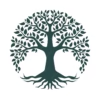The Tree of Life Movement can refer to different things depending on the context—spiritual, religious, environmental, or even artistic. Here are the most common interpretations:
1. The journey to spiritual balanced mindset
The journey to spiritual balanced mindset of the physical, emotional which correlates the universality of a spirit
- The interconnectedness of all life
- The path of spiritual enlightenment
- The structure of the universe and the oneness soul
- The spiritual health and healing
- The oneness of the self free from guilt and have a good conscience the path to renewal of your mind, body and spirit
2. Religious Interpretations
- In Kabbalistic Judaism, the Tree of Life is a central mystical symbol representing the ten sefirot (divine attributes) and the structure of the spiritual world.
- In Christianity, the Tree of Life appears in Genesis and Revelation as a symbol of eternal life and divine wisdom.
- “Tree of Life” is a group of archangels to protect life and health of each human being in their name to signify growth, unity, and divine connection.
3. Environmental/Sustainability Movements
In environmental or eco-spiritual contexts, the Tree of Life Movement may refer to groups focused on:
- Protecting nature and biodiversity
- Promoting sustainable living
- Reforesting or tree-planting efforts
- Recognizing the Earth as a living, interconnected system
4. Cultural or Artistic Movements
Some art collectives or cultural organizations use the name “Tree of Life” to represent:
- Cultural renewal
- Heritage and ancestry
- Community resilience
- Healing through creative expression

